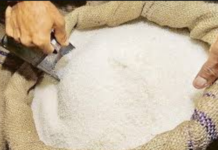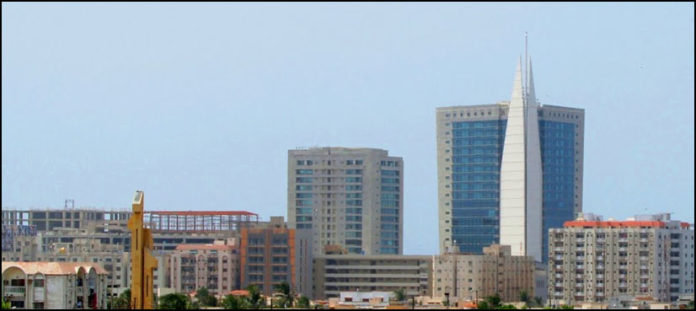- Around 70 steel re-rolling mills in Sindh and Balochistan have closed their operations owing to lack of demand
- ABAD chairman says the Supreme Court banned the high-rise constructions on a ‘wrongly-presented water crisis report’ by KWSB
KARACHI: The ban on construction of high-rise buildings has started taking its toll as all steel re-rolling mills in Sindh and Balochistan have closed their operations for an indefinite period owing to lack of demand, rendering about 25,000 workers jobless.
Association of Builders and Developers of Pakistan (ABAD) Chairman Muhammad Hassan Bakshi has said that aftershocks of the ban on high-rise buildings and unnecessary hurdles in the issuance of no-objection certificates are becoming evident, as 70 steel re-rolling mills of Sindh and Balochistan have closed their operations due to a significant fall in the consumption of steel bars.
He said that the Supreme Court of Pakistan had banned the construction of multi-story buildings in Karachi on a “wrongly-presented water crisis report” by the Karachi Water and Sewerage Board (KW&SB).
“Despite the fact that the ban has directly affected the livelihood of around 500,00 workers/professionals in Karachi, the Sindh government has not taken any concrete step to resolve the water crisis,” he lamented, adding that the provincial government was still paying no heed to address the grave issue even after 19 months since the ban was imposed.
He further said that the Supreme Court of Pakistan, after banning the construction of high-rise buildings, had allowed the construction of up to six floors, however, the water commission appointed by the apex court imposed a condition of NOC from utility agencies before approval of the plan by the Sindh Building Control Authority (SBCA). “The commission has also instructed KW&SB not to issue any water NOC, besides forcing SBCA not to approve the construction plan,” he added.
The ABAD chairman said that an investment of more than Rs600 billion has been stopped due to the ban, while thousands of people, including architects and engineers, have become jobless, adding that the closure of production by steel re-rolling mills has added oil to fire, as 25,000 workers have been laid-off.
“We fear that after the closure of steel re-rolling mills, more allied industries will be closed,” he deplored.
It is pertinent to mention that in May last year, the SC had restrained the SBCA and cantonment boards from issuing building approval plans for new high-rise and multi-storey commercial and residential projects without the availability of proper water supply and sewerage systems.
The top court was compelled to slap a ban on new projects being allowed by the government sans proper planning to resolve the worsening crisis of potable drinking water and deteriorating sewerage system in Karachi and the rest of the province.
The court had also directed the private builders and developers’ association to write a proposal on the installation of treatment plants in each multi-storey project in order to resolve the problems relating to sewerage.
Subsequently, the SBCA had stopped approval of new building plans for skyscrapers. Later, the private builders and developers’ association approached the SC, pleading to review its restraining order.
The Supreme Court (SC) in April this year had ruled that the ban imposed on construction of high-rise buildings in specific residential and commercial localities will remain in force in the metropolis.
A two-judge bench, headed by Justice Faisal Arab, directed that the restrictions imposed on the construction of the upper floors of the buildings in specific residential and commercial localities of the city would remain in force as usual. They also maintained the court’s earlier order banning construction of buildings beyond six floors and disposed of the application.
























